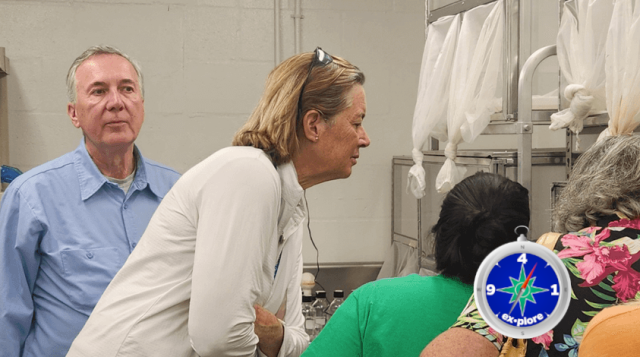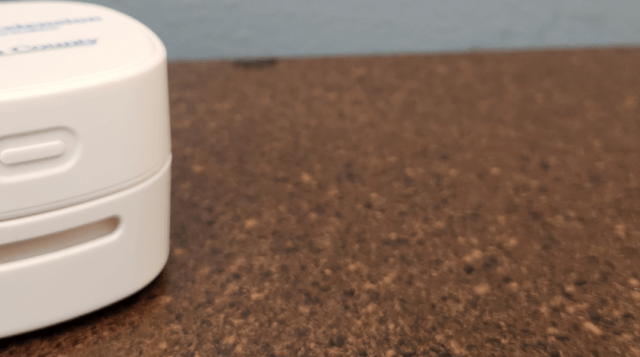
INTEGRATED PEST MANAGEMENT
Integrated Pest Management (IPM) uses a combination of several strategies to manage pests sustainably. The goal of IPM is to reduce over-reliance on pesticides to protect the health and safety of people, pets, and the planet. Adopting IPM is taking on the role of a pest detective, figuring out the main "culprit" behind the pest problem before finding the right methods to "solve the case."
 IPM involves five steps:
IPM involves five steps:
- IDENTIFY
Make sure to manage the pest. Work with a trusted expert to determine an accurate identification.
- MONITOR
Keep an eye on the pest population. If it increases or the problem worsens, it might be time to intervene.
- DETERMINE THE ACTION THRESHOLD
If the pest causes a significant problem, put your IPM plan into action.
- USE IPM STRATEGIES
Work with a professional or on your own to determine the most effective strategies for suppressing the pest population. Aim for the lowest-impact methods first.
- EVALUATE
If IPM methods decrease the pest population, consider your plan a success. If not, consider revisiting your methods.
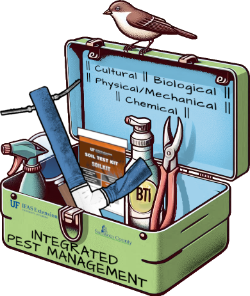 When it comes to the strategies involved in an IPM plan, they can best be described as "tools" used alone or together to better tackle the pest problem. These tools include:
When it comes to the strategies involved in an IPM plan, they can best be described as "tools" used alone or together to better tackle the pest problem. These tools include:
- Cultural Control
Making conditions unfavorable for pests
Examples: Proper irrigation and fertilizer management, choosing the right plant for the right place, mowing grass at the right height to prevent scalping, cleaning up crumbs after a meal
- Physical/Mechanical Control
Using your hands, tools, or equipment to manage pests
Examples: Hand-pulling weeds, using a fly swatter, setting up barriers or traps, selective pruning, solarization, aquatic weed harvesters
- Biological Control
Recruiting organisms to reduce pest populations
Examples: Using mosquitofish to manage mosquito larvae, the air potato beetle to manage air potato vines, the Larra wasp as a parasitoid of mole crickets, entomophilic nematodes
- Chemical Control
Application of pesticides (insecticides, herbicides, fungicides, etc.)
Examples: Neem oil, insecticidal soap, vinegar, pyrethroids, organophosphates, neonicotinoids
Not all pesticides are created equal. It is critical to choose the correct pesticide for the targeted pest and follow the label instructions for use. When applied according to the label, pesticides registered with the U.S. Environmental Protection Agency do not pose unreasonable risk to people or the environment. IPM also emphasizes prioritizing lower-impact chemicals whenever possible, and only when chemicals must be used. For many situations, pesticides are not necessary.
IPM might take more thought and effort, but it is the only way to successfully manage pests long-term. Avoid treatments that promise an easy solution for a multitude of pests. These often have unintended consequences for the local ecosystem when applied irresponsibly or in excess, potentially harming beneficial insects, desired vegetation, and wildlife.
IPM Efforts in Sarasota County
![a sarasota county employee uses a leaf blower to clear debris near a storm drain. [credit: sarasota county government]](/media/sfylifasufledu/sarasota/images/chems/ipm/IMG_1743_CROP2000x1333-263x175.png) Sarasota County's pesticide applicators make an active effort to treat pests through an IPM framework. Part of this effort includes maintaining an Approved Pesticides List, which is reviewed regularly. This effort includes maintaining an active IPM Working Group that meets regularly throughout the year to discuss current pest issues and how to treat with minimal environmental impacts.
Sarasota County's pesticide applicators make an active effort to treat pests through an IPM framework. Part of this effort includes maintaining an Approved Pesticides List, which is reviewed regularly. This effort includes maintaining an active IPM Working Group that meets regularly throughout the year to discuss current pest issues and how to treat with minimal environmental impacts.
County applicators take special care to protect local water quality and wildlife, including beneficial bugs like pollinators. UF/IFAS Extension Sarasota County also offers many classes and trainings to educate applicators within the county and beyond on the best practices associated with pest management.
Approved Pesticides List
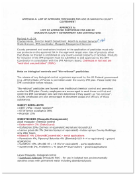
The Approved Pesticides List is a living document that is maintained by members from multiple County departments, "formally" known as the Integrated Pest Management (IPM) Working Group.
County personnel or contractors involved in the application of pesticides or biological control agents must only use products from the approved list in the approved target area, as specified. Use of pesticides other than those on this list is prohibited on any county-owned property or facilities.
![pesticides in containers are stored neatly on shelves in a secured area. [credit: uf/ifas, tyler jones]](/media/sfylifasufledu/sarasota/images/chems/ipm/2023_Chems_ipmPesticideStorage01_ifasTylerJonesCROP2000x1333-251x167.png) Pesticides suggested for inclusion in the Approved Pesticides List must be submitted and approved through a rigorous review and trial process.
Pesticides suggested for inclusion in the Approved Pesticides List must be submitted and approved through a rigorous review and trial process.
Sarasota County Policies and Procedures
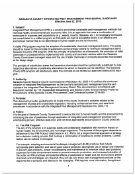
The Sarasota County IPM Procedural Guidelines declare that county policy is to employ "integrated pest management practices and emphasizing (the use of) proven, least-toxic and non-toxic approaches and products" to reduce human health and environmental risk.
FAQs
In accordance with the EPA, products on the Approved Pesticides List, when used as instructed by the label, are found to pose no unreasonable risk to human, animal, or environmental health.
Sarasota County Government understands the concerns residents might have for any environmental impacts associated with chemical use. Because of these environmental concerns, including those for beneficial insects and water quality, special care is taken by certified applicators to appropriately apply chemicals, using approved practices while operating under the Federal and State laws for applying pesticides and biocontrol agents.
Before using pesticides, beekeepers should implement an IPM plan or program for managing their hives. Reducing pesticide use to only what is necessary is an important part of preventing resistance, as well as protecting the hive and surrounding environment. If chemically treating pest problems, beekeepers should only use products intended for use in the specified manner and follow all guidelines provided by the product label. For more management advice, visit this webpage.
All Florida beekeepers are required to register their hives through the Florida Department of Agriculture and Consumer Services (FDACS). This is to prevent unintended spread of honey bee pests and disease, as well as to avoid increasing populations of highly defensive Africanized honey bees. To learn more about the registration process, click here.
Beekeepers should, by law, follow FDACS regulations and responsible beekeeping practices to minimize risks to bee colonies. Beekeepers are also encouraged to register at Alert Sarasota County to receive prior notification of treatments, such as mosquito adulticides, in order to take any extra precautions to protect their hives.
Sarasota County Government often rotates pesticide use according to a compound's group number, or mode of action. This helps prevent pests from building resistance, as can occur when pests develop genetic mutations that inhibit pesticide effectiveness. These mutations, passed down to subsequent generations, might persist in the population for several decades before further mutations cycle them out or, can become irreversible.
Alternating between different pesticides to treat the same pest problem minimizes the likelihood of a genetic mutation surviving across generations, thereby reducing the risk of resistance. For this reason, some pesticides are kept in reserve on the Approved Pesticides List but are not currently in use. This facilitates switching products if resistance is detected in a target pest population.
For questions on a particular product, please contact the associated department.
Changes to the Approved Pesticides List are done as needed, based on scientific data provided by EPA, FDACS, UF/IFAS, and members of the IPM Working Group. Additions of newly proposed pesticides or biocontrol agents are done after lengthy trials supported by scientific data.
Removals of products can occur due to several factors, including, but not limited to:
- Product unavailability
- Substitutions of newly proposed products
- The required removal of products as directed by the EPA
- Vendor contract expirations without renewals
Note: The Approved Pesticides List might be updated at any time, without notice.
Biological control agents are used as much as possible to reduce the overall need for pesticides. On their own, however, they might not apply to every situation nor provide sufficient management.
Biological control agents:
- Bacillus thuringiensis israelensis (Bti), a naturally occurring bacteria that stops mosquito larvae from feeding, interrupting their life cycle
- Mosquitofish (Gambusia holbrooki), which prey on mosquito larva
- Air potato beetles (Lilioceris spp.), which eat the leaves and bulbils of the invasive air potato vine (Dioscorea bulbifera)
- Larra wasps (Larra spp.), which parasitize mole crickets (Gryllotalpidae)
Yes, under Sarasota County's IPM plan, biorational pesticides are favored over conventional pesticides! Biorational pesticides are lower-impact pesticides that are derived from natural products. Some examples of biorational pesticides that are used include mineral oil, lemongrass oil, Spinosad, diatomaceous earth (DE), and insecticidal soap.
Contact
If you have specific questions or concerns about the information on this page, please call 311 or 941-861-5000. You can also email contactcenter@scgov.net.
For specific product questions, contact the relevant department below:
- Mosquito Management Services
- Parks, Recreation, and Natural Resources
- Stormwater Environmental Utility
- University of Florida's IPM Academy website
- Classes and training from UF/IFAS Extension Sarasota County
- UF/IFAS Extension Canvas Catalog
- Environmental Protection Agency
- Online Sunshine - Official Internet Site of the Florida Legislature
- Centers for Disease Control and Prevention
- Florida Department of Health
- US Department of Agriculture
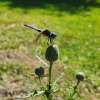 How does Sarasota County address environmental impacts?
How does Sarasota County address environmental impacts?![closeup of swarm of bees active in an open commercial beehive. [credit: unsplash.com, maxime bouffard]](/media/sfylifasufledu/sarasota/images/chems/ipm/2025_Chems_ipmBeehive_unsplashMaximeBouffardCROP150x150-100x100.png) What can I do as a beekeeper to protect my bees from pesticide exposure?
What can I do as a beekeeper to protect my bees from pesticide exposure?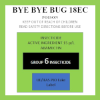 What is pesticide rotation?
What is pesticide rotation?![university of florida students use microscopes and other equipment to conduct science experiments in a lab setting. [credit: uf/ifas, tyler jones]](/media/sfylifasufledu/sarasota/images/chems/ipm/2024_Chems_collegeSciLabMicroscope_ifasTylerJonesCROP150x150-100x100.png) How often does the Approved Pesticides List update?
How often does the Approved Pesticides List update?![closeup of an eastern mosquitofish (gambusia holbrooki) in lab tank. [credit: usgs]](/media/sfylifasufledu/sarasota/images/chems/ipm/2025_Chems_mosquitofishGambusiaHolbrooki_usgsChrisApplebyEDIT150x150-100x100.png) Which biological control agents does Sarasota County use?
Which biological control agents does Sarasota County use?![closeup of a pile of food-grade diatomaceous earth. [credit: wikimedia.com]](/media/sfylifasufledu/sarasota/images/chems/ipm/2018_Chems_diatomaceousEarthPile_wikimediaSprocketRocketCROP150x150-100x100.png) Does Sarasota County use biorational pesticides?
Does Sarasota County use biorational pesticides?